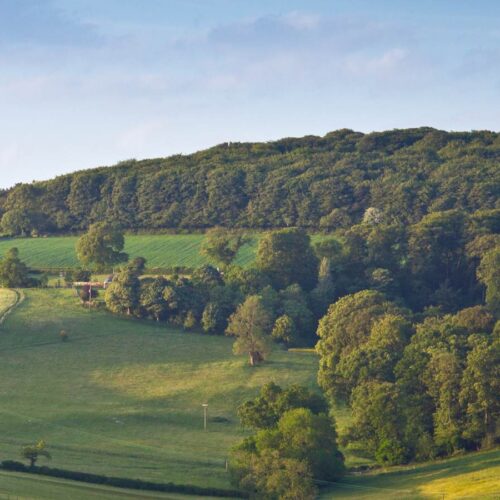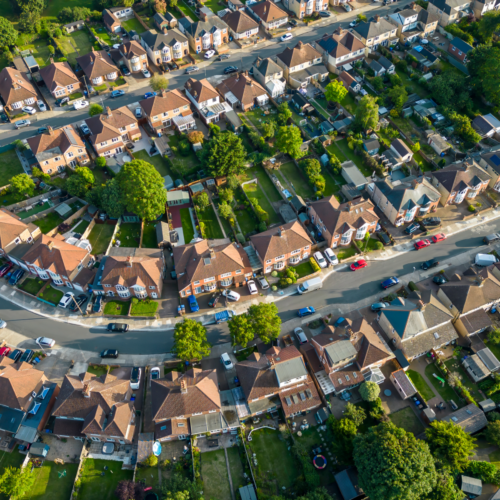Since the Environment Act became law in November 2021, and included a mandatory requirement for most planning applications to provide a 10% net gain in biodiversity, an update from the government has been eagerly awaited to confirm an exact timeline for when Biodiversity Net Gain (BNG) will be enforced and details about the new legislation.
From November 2023 mandatory BNG will become a requirement for most planning permissions granted, which will have widespread impacts on both public and private sectors – get in touch with Thomson to find pragmatic solutions tailored to your individual project needs.
BNG – What’s the latest?
On 21st February 2023, the UK government published their response to the public consultation on BNG regulations and implementation. The consultation set out Defra’s proposals and asked questions on how the requirement for BNG will be applied to developments and Nationally Significant Infrastructure Projects (NSIPs). The response outlines the government’s current policy position and reports on responses received during the 12-week consultation period.
Key points from the consultation response are:
- Timeframe – The majority of planning applications will be required to comply with the mandatory 10% BNG requirements from November 2023. Implementation of mandatory net gain will be phased for “small sites”, which will now have until April 2024 to comply with the regulations. NSIPs will be required to comply with BNG requirements from 2025.
- 10% BNG – For all Town and Country Planning Act 1990 developments, 10% mandatory net gain will be mandatory, apart from a few exempt development types.
- Planning applications – A BNG statement will be required alongside the planning application and a biodiversity gain plan must be submitted and approved prior to commencement of work.
- Irreplaceable habitat – Secondary legislation will set out to define irreplaceable habitats and to apply a separate metric requirement for these. Further guidance on this will be published by the government in due course.
- Selling excess biodiversity credits – Developers who exceed the biodiversity gain objective will be allowed to use or sell the excess biodiversity units as off-site gains for another development.
- Funding – Up to £16.71 million of funding will be provided to Local Planning Authorities (LPAs) to prepare for mandatory net gain between now and November 2023.
- What’s next? – Draft secondary legislation is due to be published later in 2023 along with further guidelines on how mandatory BNG will be administered and implemented.

What is BNG?
BNG aims to leave the natural environment in a measurably better state than it was before. It has been used for many years by various local planning authorities, utility providers, housing developers and other organisations to demonstrate how development can achieve positive biodiversity outcomes. However, it will soon become an integral part of gaining planning consent and it will be mandatory for most new developments to deliver a 10% BNG. This requires the use of a biodiversity metric to quantify the value of habitats before and after development.
Will my development require BNG?
Most new developments will require BNG. Exemptions were already made in the Environment Act, 2021 for permitted development and urgent crown development. Further exemptions were given in the consultation to developments impacting habitat below <25m2 (or 5m for linear habitat), householder applications, biodiversity gain sites and small-scale self-build and custom housebuilding.
What if I can’t deliver BNG on-site?
The delivery of biodiversity gains on site will be encouraged, however, where this is not possible, guidance and provisions will be made for developers to purchase off-site biodiversity units through a private off-site market. This will include the costs of monitoring and maintaining the land for a minimum of 30 years. Statutory biodiversity credits will also be available to purchase which will be invested in habitat creation. This is a last resort for BNG delivery and is intended to be phased out once the private market has matured. Further details and guidance for BNG provision off site is expected to be published before November 2023.
How can Thomson help?
Our ecologists have extensive knowledge and experience at undertaking habitat surveys and condition assessments for a range of projects. We aim to maximise efficiency for clients by utilising the data collected during Preliminary Ecological Assessments (PEA) to produce baseline data for BNG calculations which saves time and minimises costs. Our award-winning Geospatial team support our ecology experts to provide accurate and rapid BNG calculations using baseline survey data and post-development plans.
Our Climate Change and Sustainability team can add further value to plans for post-development enhancement, with climate resilient planting recommendations that also maximise carbon sequestration.
Our one-stop ecological consultancy and contracting service means we can deliver the practical site work to transform plans into reality, realising those net gains for biodiversity on site.
Contact Us











